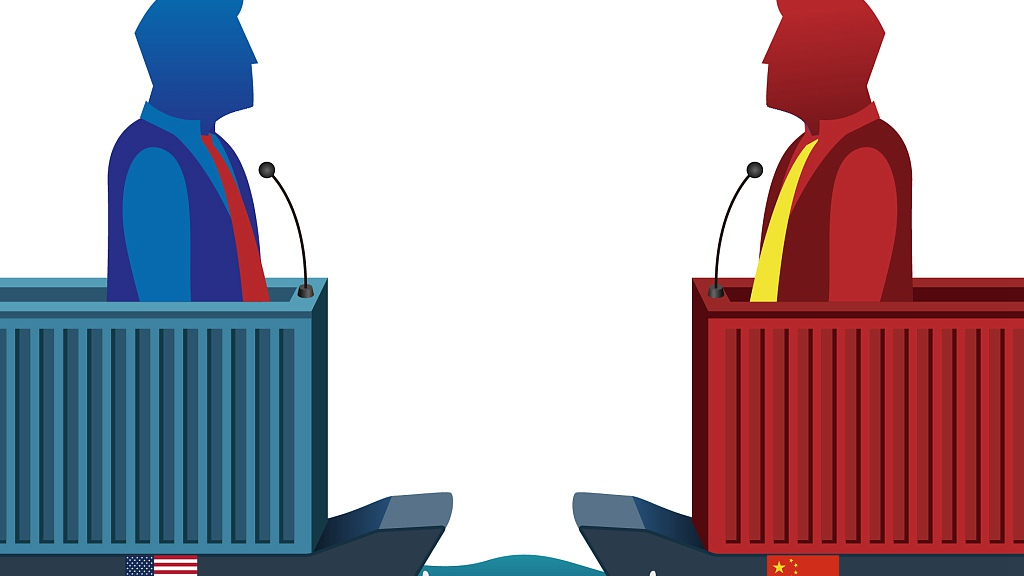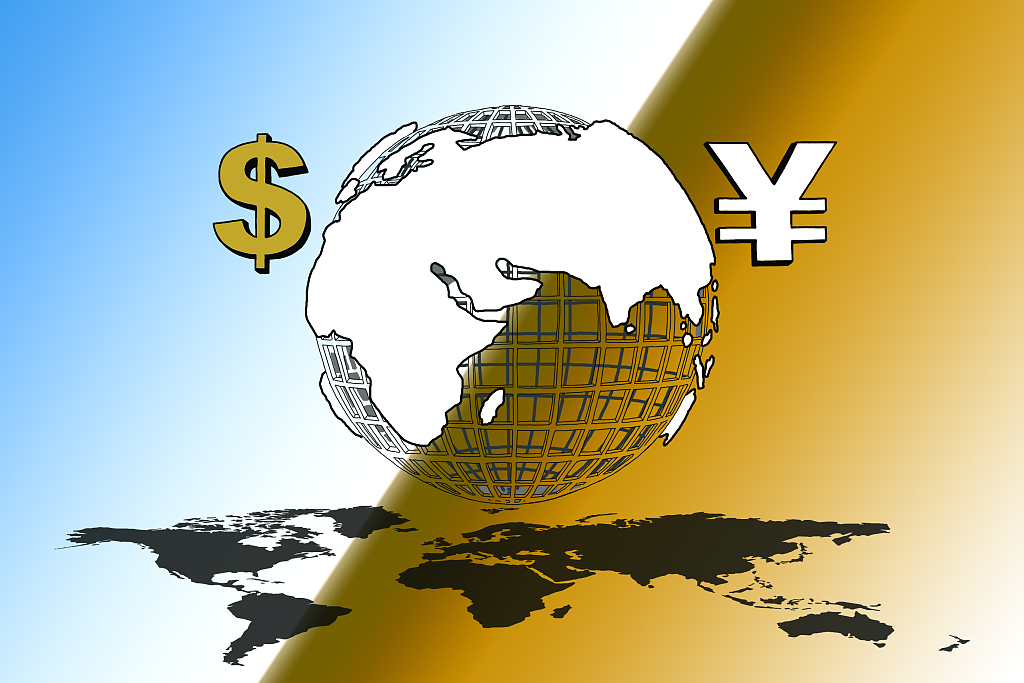
A new round of trade talks is set to resume in Washington on October 10, 2019. /VCG Photo
A new round of trade talks is set to resume in Washington on October 10, 2019. /VCG Photo
Editor's note: Freddie Reidy is a freelance writer based in London. He studied history and history of art at the University of Kent, Canterbury, specializing in Russian history and international politics. The article reflects the author's opinion, and not necessarily the views of CGTN.
As trade talks are set to resume in Washington on Thursday, the president was typically bullish. "I have a lot of options on China, but if they don't do what we want, we have tremendous power." Is President Trump sincere in wishing to secure a deal though? Or does this quote signify the greater use of trade talks to enhance Trump's credentials as a defender of American jobs, freedoms, and liberties ahead of the 2020 election?
The trade war with China isn't the only trade war on which the president has embarked on recently. The EU has also been in the crosshairs of the president. A victory was secured there last week when the WTO ruled that it was legitimate for the U.S. to impose 25 percent tariffs on European Union goods amounting to 7 billion U.S. dollars. A comparatively meager sum compared with the 250 U.S. dollars billion's worth of tariffs against China due to take effect on October 15. The victory may be symbolic, but it speaks to a key electoral pledge of the president to "protect American jobs", and such victories will certainly play well with his electoral base.
Ahead of Thursday's meeting, we have seen the usual mix of vitriol and overture from the U.S. towards China. On the one hand, declaring that the U.S. is "winning the trade war" while simultaneously acquiescing to Chinese Vice Premier and chief talk negotiator – Liu He's request for a delay to the latest round of sanctions in deference to the 70th anniversary of the People's Republic of China. These mixed messages, which once may have been confusing, are now increasingly the norm and are causing a great deal of global economic and diplomatic frustration.
Is the president, therefore, sincere in wishing to pursue a deal? Thursday's meeting will be the 13th between the world's two largest economies, and there seems to be little prospect or anticipation of a breakthrough. At best, markets are hoping that talks will resume from the relatively positive position of the Spring negotiation, but significant differences remain.

What could also look like insincerity from Trump is an apparent unwillingness to come to a halfway agreement and make some small concessions to ease the tension. This isn't really in the Trump playbook, though. Time and again, the president has pursued a policy of maximum pressure. There are two factors that could coerce the president into reaching some form of an agreement. One is political, with the escalation of impeachment proceedings, the president could be squeezed into a quick, albeit smaller "win" in a mini agreement as he senses a loss of political influence in pushing a more significant deal through. Continued engagement in talks could also be motivated by a Wall Street sell-off as the president has previously used the stock market as a barometer for his policies.
The president has recently taken to blaming the Federal Reserve though for the apparent sluggish performance of the markets. Weaker than anticipated performance has increased pressure on a settlement to ongoing trade disputes amidst mounting speculation of an imminent downturn. The Fed was split on rate cuts, wishing to retain the means to combat the next downturn which PIMCO CEO Emmanuel Roman speaking at Bloomberg's Invest London event on Tuesday suggested could be next year.
Should we expect a deal? Absolutely. So far, though, one of Donald Trump's great strengths has been his ability and willingness to walk away. If we see a compromise arrangement between the U.S. and China, it will almost certainly be a harbinger of unfavorable political winds and a perceived political vulnerability from the White House. If Trump is hampered in maneuvering as he sees fit, the prospect of a landmark settlement in his first term is over. The president could soon find himself in a race between policy objectives and political events on the hill.
When questioning Donald Trump's sincerity on the prospect of a deal, it is important to remember that the current tariff war is a fight the president brought into being. A resolution to which will almost certainly be at a time of his choosing and time ensuring the greatest impact and political capital.
Donald Trump is well known to sweat his electoral assets. There is no doubt, therefore, that he will continue on his current trajectory and retain pressure on China in a continuation of the trade war. Portraying himself as a defender of American jobs will be the cornerstone of his 2020 campaign. Whether he will seek to use a newly minted deal as evidence of his credentials as a "deal maker" or whether he dangles the prospect of a deal close-in-sight as an electoral carrot, remains to be seen.
(If you want to contribute and have specific expertise, please contact us at opinions@cgtn.com)